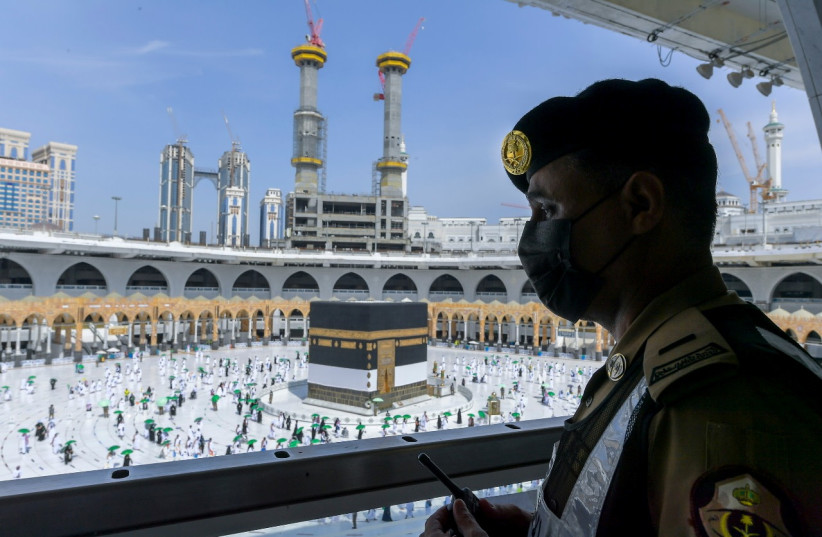Iranian haj pilgrims traveled to evening prayers in Mecca's Grand Mosque in a brand new bus this week, as reconciliation between Saudi Arabia and Iran led to improved services for the annual pilgrimage to Islam's holiest sites.
Sayid Mahdi, who will be in charge of around 2,800 Iranian pilgrims that will perform haj next week, said Saudi Arabia has been more cooperative in finding hotels for Iranians this year.
"We thank God that this is improving," he said. "God willing we can offer better services to the pilgrims of the holy mosque."
2023 haj season
Saudi Arabia is preparing to host some 2.6 million pilgrims next week for the 2023 haj season after removing all COVID-19 restrictions for the first time since 2019. Iran's official media said 87,550 of those will be Iranians.

Regional rivals Iran and Saudi Arabia agreed in March, in a deal brokered by China, to end a diplomatic rift following years of hostility that had fueled regional conflicts and made it sometimes difficult for Iranians to perform haj and umrah.
Umrah is another form of pilgrimage to Mecca which - unlike haj - can be carried out at any time of the year.
Iran repeatedly criticized how Saudi Arabia runs the pilgrimage and boycotted the annual gathering in 2016 after hundreds of people, many of them Iranians, died in a crush in the previous year. The kingdom said Iran sought to politicize haj.
Iranian pilgrim Mohammed Hossaini landed in Mecca on Thursday, five days before the annual gathering starts, seeking to perform both umrah and haj in one trip.
"I am very happy that relations between the governments of Iran and Saudi Arabia are improving... This will improve Muslims' travel to the house of God,” Hossaini said in his hotel lobby in Mecca, wearing the pilgrims' white robes that symbolize purity and equality before God.
Haj, a once-in-a-lifetime duty for every able-bodied Muslim who can afford it, is a major source of income for Saudi Arabia from worshippers' lodging, transport, fees and gifts.
Balloons and haj slogans in Farsi decorated the Al-Mozn hotel where Hossaini, and other pilgrims from the Iranian city of Shiraz, stayed in Mecca.
"Haj will be a Koranic evolution, Islamic convergence and defense of Al-Aqsa Mosque," read one of the signs, referring to Islam's third holiest shrine in Jerusalem.
"I witnessed a very good Haj this year. We have come here in complete peace," said Mojtabi Laliany, another Iranian pilgrim from Mahdi's campaign.
